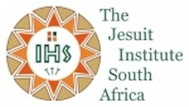South African Viewpoint: From Amazonia to …. the World?

Even before it has started, the up-coming Pan-Amazon Synod has generated theological heat in the Catholic Church. Its working document - or Instrumentum Laboris - has already been denounced in some circles as heretical. Others welcome it as a sign of hope for change in the Church.
The Instrumentum is too detailed to analyse here, but a few key points are worthy of mention. It focuses on the needs of a Church comprised heavily of Amerindians - the 'First Peoples' of a territory that spans nine Latin American nations and seven Bishops Conferences. These communities, deeply rooted in indigenous cultures, are under threat of disappearing in the face of modernisation and the inroads of big business.
The latter has a negative ecological impact on what was once one of the richest and most diverse ecologies on our planet. Where for the most part indigenous peoples have learned to live with the Amazonian 'biosphere', non-indigenous people have not. Vast chunks of the Amazon region has already been 'commercialised' by corporations and business - with the support of Brazil's current president, Jair Bolsonaro.
One of the primary concerns of the Synod, then, will be environmentalism and the protection of indigenous cultures.
Beyond that there is a profound concern for the Church's own apostolate in Amazonia. The Church is all too aware that it remains a 'Western' institution and many seek a more inculturated mode of proceeding. Furthermore, the Church is all too aware of the lack of priests to minister to Amerindian communities.
These communities are usually small, stretched out over a vast territory, and often live in inaccessible places. There are very few local vocations - mainly because the notion of celibacy is culturally alien - and the few priests who work in Amazonia (mainly from Latin American countries and a smattering of foreign missionaries) are too thinly spread around to be effective.
It is for this reason that a proposal to ordain properly trained local married men - and even possibly ordaining women as deacons - has been put forward.
Can you see why some folks are nervous? Married priests. Women deacons. Inculturation. And for some perhaps an ecojustice agenda that puts the Church firmly on a collision course with the populist right - in the Americas and elsewhere - who deny there is an ecological crisis because it's 'bad for business.'
Some certainly see that such decisions mooted about changing who may minister in Amazonia could have a global knock-on effect. If allowed in Amazonia, it would be absurd not to allow married priests (and women deacons) in the seven episcopal conferences that have jurisdiction in the territory. And if seven conferences take that decision… who's next?
Yet for the Amazonian Synod the issue here is clear: no change means virtually no priests. Virtually no priests means virtually no sacraments most of the time for most of the people. And that in effect means that rather than grow, the Church will effectively die out.
Sound familiar?
Follow The Jesuit Institute on Twitter @JesuitInstitute


















